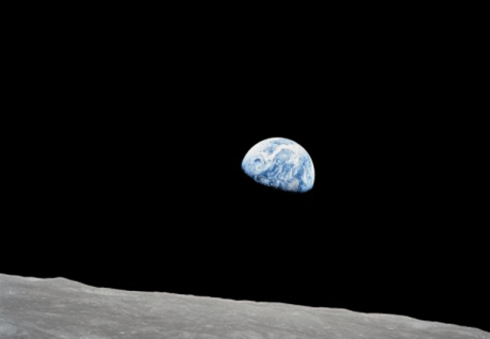Published: 27 January 2015
Can the property development industry deliver climate-ready cities?
Eddo Coiacetto
Developers often cop criticism for being environmental vandals who’d do anything in the name of profit. But the industry is complex, ranging from one-off ‘mum and dad’ investors to global corporations. One thing they all have in common is that what they produce – residential and commercial developments – will need to perform in future environments that may call into question how or why the structures were built in the first place.

|
|
Gold Coast skyline, 2012: Coastal development in south-east Queensland may be impacted by more powerful storm surges and sea-level rise. |
There is no ‘typical’ property developer. Private property development is a complex, high-risk industry in which the developer is the entity, person or institution that manages the risks of development.
Unlike builders, developers do not have to be qualified, accredited or registered. While some may come from land-related professions and trades, others may be from unrelated fields, such as mining. Firms can be created specifically for a development project, then dissolve on project completion.
Can an individual developer deliver climate-ready developments? To an extent, some already do. The question though, is whether the entire collective of developers responsible for building cities – the development industry – can do it.
The question is important because developers play a key role in shaping cities.1 Developments contribute to climate change because they impact on energy consumption and greenhouse emissions. New buildings and houses also affect the degree of exposure of users and residents to heatwaves, flooding and other extreme weather events. The extent to which they do depends on factors like:
-
location
-
site features
-
building features, and
-
private governance arrangements, such as covenants, easements and body corporate rules that developers put it place for users.
Regulation seeks to influence the above characteristics. But land use planning has had little traditionally to say about private governance arrangements. And building standards are relatively unproblematic and acceptable to developers: there is even a significant degree of industry self-regulation via green rating schemes, for example.
Importantly, controlling the location of developments, and to a degree their design, is politically charged, since it profoundly impacts property values and development feasibility.
At this point, it’s worth defining what a ‘climate-ready’ development industry would look like. It would be one that:
-
has the capacity to, and which can change to, deliver – in both the short and longer-term – products that reduce or minimise users’ exposure to climate hazards, and products that contribute to reducing energy use and GHGs; and
-
is at the same time resilient to, and has the capacity to deal with, climate change consequences, both direct and indirect.2
Developers’ exposure to the risks of climate change is limited because their commitment to a project is short – from several months to, at most, a couple of decades – compared to the lifetime of that development and the timeframes of predicted climate change hazards, such as sea-level rise.
Further, developers differ in their capacity and willingness to respond to the risks of climate change. They include builders, solicitors, ‘mum and dad’ developers, large diversified global corporations, mining companies, financial institutions and superannuation companies. They may be individuals or corporations, and may also be one-time operators, occasional developers, or professionals. Some developer ‘entities’ merely manage a development project for a fee while passing the risk of development on to equity investors, who may be ordinary people trying to save for their retirement.
Each entity has a different way of operating and some have more power than others to shape their operating environment. That environment is made up of diverse opportunities and risks – such as market risks, site risks, funding risk and planning risk. Different developers respond to the same stimuli (risk or opportunity) in different, even opposite, ways to other developers.
The problem therefore is that there can be no generic industry-wide response to climate change or to a climate -related regulation/policy. In other words, a given policy will not work with all developers.
Take land-use zoning to control the location of development, for example. Some developers only seek out land that is zoned for what they want to use the land for. However, other developers, perhaps with more time or power on their side, search only for land that is not zoned and then seek to rezone it because landowners want too much for zoned land.
As mentioned, the climate risks are not the same for all developers. A developer specialising in marina developments in North Queensland may be exposed to sea-level rise, storm surge and cyclonic activity; whereas one specialising in retirement units in central Queensland may be exposed to bushfires, drought, heat stress and inland flooding.
This discussion has so far focused only on the development industry. But climate-ready development necessitates a whole-of-sector approach, including landowners, financiers, builders and suppliers, engineers, consultants, and designers.
The role of finance is central and critical because it is this capital that is placed at risk in a development.
Policy makers can support the development industry’s adaptation to climate change by providing timely, accessible information.3
Many government departments are the custodians (and originators) of substantial data banks, yet access is often difficult, time-consuming and expensive. Strategies to improve transparency and communication of government data – such as long-term forecasts of storm surge levels – would go a long way to improving development appraisals. The easier the access to information, the more informed the eventual decision: for example, developers might avoid locations and sites at serious risk from climate change impacts.
So, while the outlook for the development industry (and its products) may sound grim, we cannot afford be pessimistic, because climate change presents an unprecedented threat. The solution thus requires an unprecedented level of consistent and concerted action by all players in the property and financial sectors, including all levels of government.
Associate Professor Eddo Coiacetto from Griffith School of the Environment, Griffith University, is interested in improving the effectiveness planning practice by basing it on a sounder understanding of the realities of urban development. Eddo is one of 31 experts who’ve contributed to the edited collection, Responding to Climate Change, published by CSIRO Publishing.
1 Squires G & Heurkens E (2015) International Approaches to Real Estate Development. Abingdon: Routledge.
2 Coiacetto E (forthcoming) Climate change governance in private real estate development: essential concepts about development for feasible research, regulation and governance. In JR Knieling (Ed.) Climate Change Governance: Theory, Concepts and Praxis in Cities and Regions. Wiley.
3 Coiacetto E, Shearer H, Dodson J, Taygfeld P & Banhalmi-Zakar Z (2014 ) One man's meat is another man's poison: why 'who' the developer is matters in climate change adaptation in the development industry. In P Burton (Ed.) Responding to Climate Change: Lessons from an Australian Hotspot. CSIRO Publishing.





